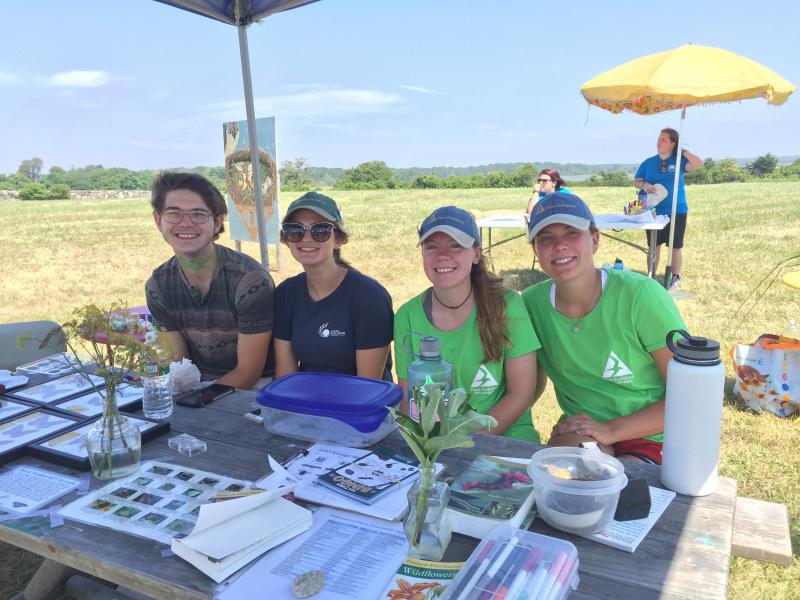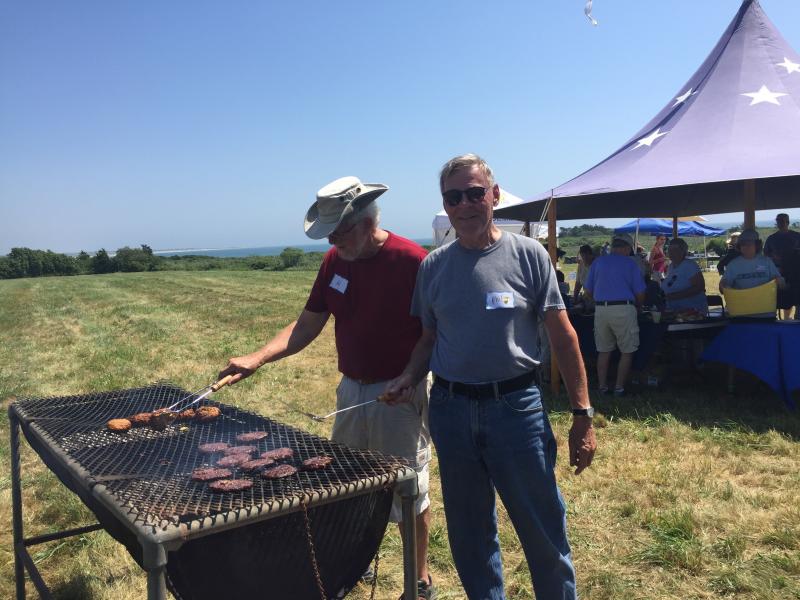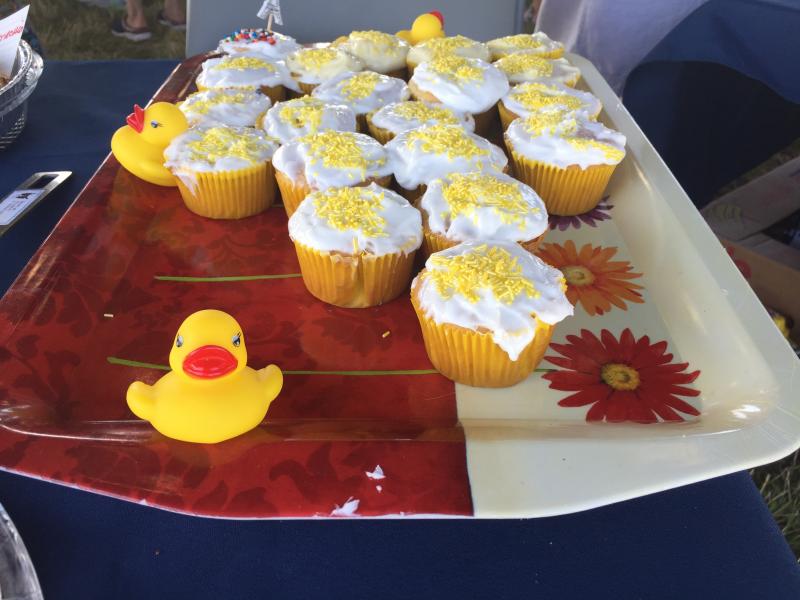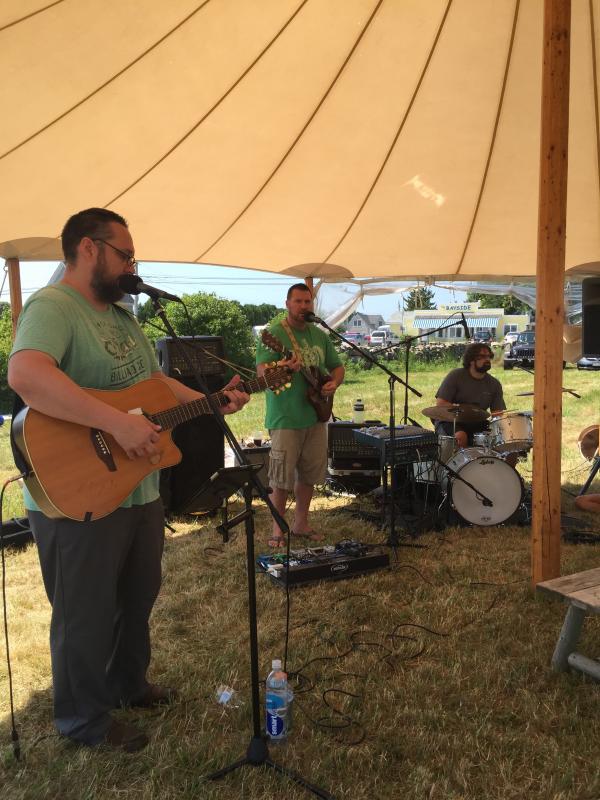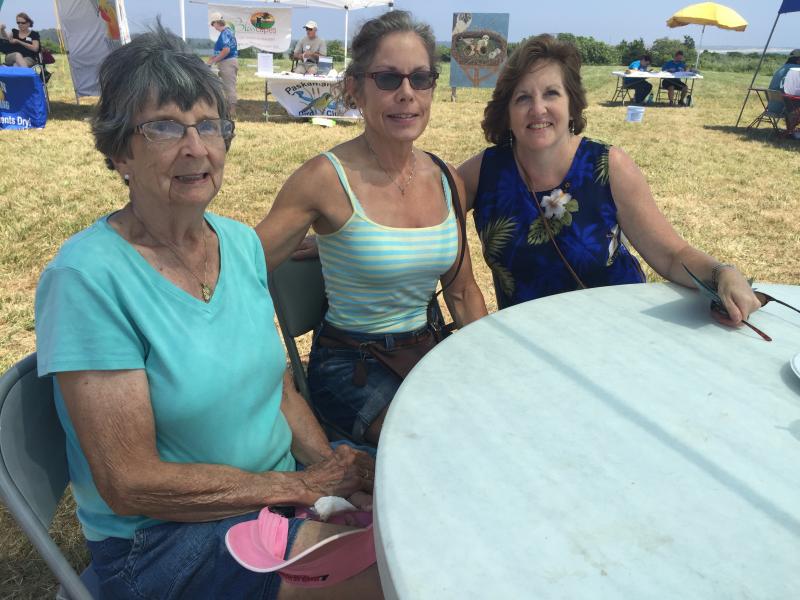Mass Audubon brings in $49,000 with rubber duck race
“It’s cooler here,” said Hilary Wood as she sat under a tent at Mass Audubon’s Duck Derby Festival on Sunday, August 14. Gentle winds wafted from the surrounding Allens Pond and Buzzards Bay and over the grassy field at 1280 Horseneck Road, where the conservation nonprofit hosted its second day of fundraising.
The day before, participants in the 13th annual Duck Derby bought rubber ducks for about $10 each, and watched them take off with the tide at Barney’s Joy Point.
The event is planned a year in advance because it’s dependent on the tide schedule, explained Programs Administer Jennifer Costa. The first-place winner among the record 6,931 ducks would earn the buyer a grand prize dinner for two anywhere in the world, which includes airfare and two nights of lodging.
“All the duck money comes to us,” said Costa. The event raised $48,885 in duck sales alone, which will cover a large chunk of operating expenses, she said.
“I like when they do present the gifts because it’s a surprise for people,” said Office Manager David Bates. The staff happily presented the grand prize to first-place duck race winner Lee Tripp, but that didn’t stop runners-up from having a good time at the festival.
“I bought a couple of ducks, so I want to see if I won the number one prize,” said Pat Bessette of Lakeville, who had hoped to score a trip to Australia, “or somewhere far,” she said.
Alongside announcing winners, the second day of festivities was complete with a barbecue lunch, sponsors’ tables, a plant auction, and a silent auction, which also aided the organization’s fundraising efforts.
“A lot of our work is hard to get revenue for,” said Allens Pond Wildlife Sanctuary Director Gina Purtell, listing the sanctuary’s junior bird club and beach rambles as examples.
Mass Audubon had some of its work on display, including research on piping plovers by Nichole Nuttall of Mass Audubon’s Coastal Waterbird Program. Nuttall explained that although the shore birds had had a lower birthing rate this year, their survival rate was higher, which she attributed to less predation. Beside Nuttall’s table, interns had a chance to show off their summer projects.
“I think it’s just interacting with the people that come and explaining to them what we do,” said Emma Hitch, whose project included growing black swallowtail butterflies. “We like what we do, so it’s no problem explaining,” she said, pointing to monarch butterflies chrysalises that she also started.



